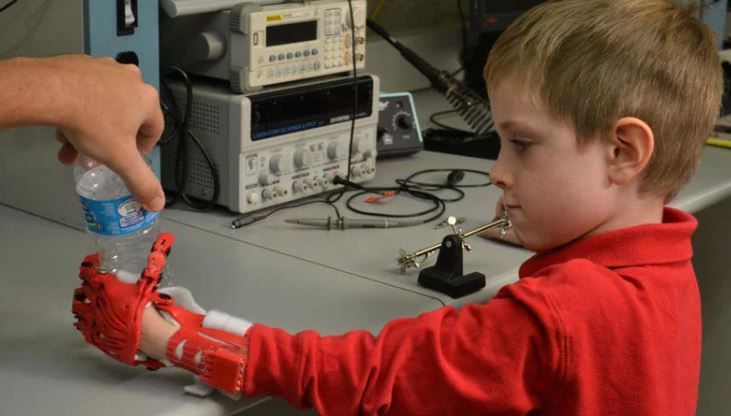Canada rather recently legalised marijuana but it came with an unforeseen side effect. Many Canadians complained that the product packaging was bulky and excessive, with all sorts of unnecessary parts. Now however, Jake Boudreau, founder of Kindness3D, is looking to take this waste and turn it into prosthetic limbs for children. “We just noticed that there was an obscene amount of waste,” Boudreau told CBC Radio. “To me it seemed incredibly wasteful. It was actually frustrating for me as a consumer.”
The lids for weed are partially non-recyclable and are bulky. This is due to the Health Canada guidelines that say marijuana packaging must be tamper-proof, child-resistant and prevent contamination. The Canadian legal marijuana packaging for four grams of weed contains two plastic packs, two cardboard boxes, and clear plastic casing, all within a brown paper bag. That’s a lot of plastic, so Jake Boudreau thought it would be put to better use reprocessed for 3D printing.
And so, Boudreau set out to do something useful with the excesses of the marijuana industry. Using other plastics, Kindness3D has already produced a prosthetic hand replacement for a woman in Brazil and one more for a girl in Costa Rica. They are also working on an arm for a four-year-old in California.
According to the company: Kindness3D is a project that connects with users around the world who desperately require artificial limbs. We use state of the art 3D printing technology and develop high quality products that are then scaled to the recipient and shipped globally. The company takes the plastic and then uses a modified paper shredding to cut the lids into smaller pieces so the printers can process them properly. This obviously involves collecting a lot of the discarded packaging as well. As a result, they asked the city of Nova Scotia for help via a petition. “We are asking the people of Nova Scotia to stand with us, and set aside your plastic lids from cannabis purchases so that we may use them to build an artificial limb for someone in need,” the company writes in their change.org page.

 亞洲大學3D列印研究中心
亞洲大學3D列印研究中心

